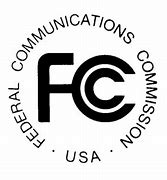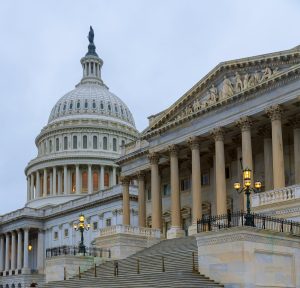In a significant legal development, the 6th U.S. Circuit Court of Appeals has ruled that the Federal Communications Commission (FCC) lacks the authority to reinstate net neutrality regulations. This decision halts the FCC’s efforts to reestablish rules requiring internet service providers (ISPs) to treat all internet traffic equally, a policy initially implemented during the Obama administration and later repealed under President Trump. (Reuters)
Background
Net neutrality is the foundational principle that internet service providers (ISPs) should treat all data on the internet equally, regardless of its source, destination, or content. This means they cannot intentionally block, slow down, or prioritize certain websites or online services over others. In essence, it ensures a level playing field online, preventing ISPs from acting as gatekeepers who can pick and choose winners and losers in the digital world.
In 2015, the Federal Communications Commission (FCC) took a significant step in upholding net neutrality by classifying broadband internet as a Title II service under the Communications Act. This classification gave the FCC more substantial regulatory authority over ISPs, allowing them to enforce rules that prohibited practices like blocking, throttling (slowing down specific types of data), and paid prioritization (where companies could pay ISPs for faster content delivery). These rules aimed to prevent ISPs from unfairly discriminating against certain types of online content or creating “fast lanes” for those who could afford to pay.
However, the regulatory landscape shifted dramatically in 2017 during the Trump administration. Under new leadership, the FCC reversed its previous decision and repealed the net neutrality rules. This move sparked intense debate and legal challenges, with net neutrality proponents arguing that it is essential for maintaining an open and competitive internet. At the same time, opponents claimed that the regulations stifled innovation and investment in broadband infrastructure.
The repeal of net neutrality has had significant consequences, creating uncertainty for consumers, businesses, and innovators alike. Without these protections, ISPs have more freedom to control how internet traffic flows across their networks, potentially leading to situations where they favor their services or those of companies that pay them while hindering access to competitors or smaller players. This could stifle innovation, limit consumer choice, and ultimately reshape the internet as we know it. The fight for net neutrality continues, with ongoing legal battles and legislative efforts seeking to restore these crucial protections and ensure a fair and open internet for all.
Recent Developments
In April 2024, under the leadership of Chairwoman Jessica Rosenworcel, the FCC voted to reinstate net neutrality rules, aiming to reclassify broadband as a Title II service and restore open internet protections. However, ISPs and industry groups filed lawsuits challenging the FCC’s authority to implement these regulations. The 6th U.S. Circuit Court of Appeals granted a stay, blocking the enforcement of the reinstated rules pending further judicial review. (The Verge)
Court’s Rationale
The Supreme Court’s ruling influenced the appeals court’s decision in Loper Bright Enterprises v. Raimondo, overturning the Chevron deference. This legal doctrine allowed courts to defer to federal agencies’ interpretation of ambiguous laws. In light of this precedent, the court stated that the FCC lacked explicit congressional authorization to reclassify broadband services and enforce net neutrality rules.
Implications
This ruling presents a significant setback for the Biden administration’s efforts to restore net neutrality, a policy essential for maintaining an open and equitable internet. The absence of federal regulations creates a regulatory void, shifting the responsibility for enforcing net neutrality to individual states. This decentralized approach risks a fragmented regulatory landscape with varying rules and standards nationwide. Such inconsistencies could complicate compliance for internet service providers (ISPs) operating in multiple states and create disparities in how consumers and businesses experience internet access.
Several states, including California, have stepped in to fill the gap left by the repeal of federal net neutrality rules. For instance, California’s robust net neutrality law prohibits ISPs from engaging in practices like blocking, throttling, and paid prioritization. California’s law has been upheld despite facing legal challenges, setting a precedent for other states considering similar legislation. However, this patchwork approach may lead to uneven enforcement, with consumers in some states enjoying protections while others lack the same safeguards. The situation underscores the importance of a cohesive national policy to ensure consistent protections for all internet users, regardless of location.
Industry and Public Response
The decision has elicited mixed reactions. Advocates for net neutrality argue that the absence of such rules could allow ISPs to engage in discriminatory practices, harming consumers and stifling innovation. Conversely, opponents contend that net neutrality regulations impose unnecessary burdens on ISPs and could hinder investment in broadband infrastructure. FCC Chairwoman Rosenworcel expressed disappointment with the ruling and urged Congress to pass legislation to ensure an open internet.
The FCC may consider appealing the decision to the Supreme Court or seeking legislative action from Congress to obtain explicit authority to enforce net neutrality rules. In the meantime, the regulatory environment remains uncertain, with state-level initiatives playing a crucial role in maintaining net neutrality protections.
The recent court ruling underscores the complexities and challenges in establishing a consistent national policy on net neutrality. As the debate continues, the future of internet regulation in the United States remains in flux, with significant implications for consumers, businesses, and the broader digital economy.








